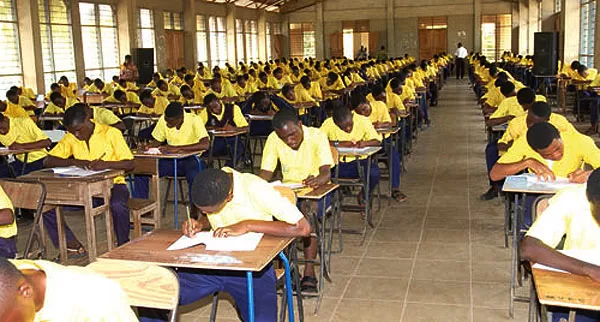The West African Examinations Council (WAEC) has provided insights into how it detected that some of the candidates who sat for the 2023 West African Senior School Certificate Examinations (WASSCE) relied on Artificial Intelligence (AI) platforms.
WAEC released provisional results of this year’s WASSCE on Monday and announced that some of the candidates engaged in various malpractices.
The Examination Council said it had withheld the results of some candidates who cheated, and cancelled the results of other students.
It also noted that candidates who took part in the exams in 235 schools provided AI-generated answers, hence their results had been withheld.
This disclosure sent shockwaves through the populace, with many asking how the examination body was able to detect such issues.
Giving further explanation on the issue, the Head of Public Affairs at WAEC, Mr. John Kapi, in an interview on Eyewitness News on Citi FM said they realized that some candidates copied wrong answers the AI platforms gave them.
He said, “One candidate typed in the question, and the response was that ‘I’m not familiar with the term you have used,’ and the candidate wrote the same response in the answer booklet. Another candidate wrote, ‘I cannot detect the term you have used.’ This is a clear indication of the use of AI.”
Mr. Kapi highlighted the evolving challenge of cheating methods, noting that candidates used to bring in mobile phones, take snapshots, send them for solutions, or sneak in with pre-solved answer sheets.
However, the emergence of AI as a cheating method poses a new and significant challenge.
The WAEC representative emphasized plans for collaboration with the Ghana Education Service (GES) to enforce strict adherence to rules regarding mobile phone usage in second-cycle institutions.
Regarding the investigation into the use of mobile phones, AI, or intercepted questions, Mr. Kapi said they are investigating the issue.
“We’ve monitored all the rogue websites that were publishing the questions we had put out there. Our investigations and some reports that were received from national security indicated that all the questions that were found online were put out there after the commencement of the examination. The suspicion is that these questions were out there after the supervisors or invigilators or even candidates had taken snapshots and put them out there seeking assistance,” he stated.
Mr. Kapi stressed the importance of candidates engaging in independent work and individual efforts for certification.
Those suspected of using AI are expected to be invited for a fair hearing.














